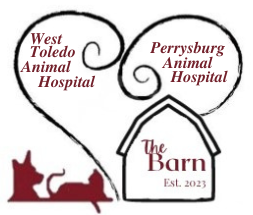Pet Pain Management
- Full-Service Veterinary Hospital to Meet All Your Pet's Needs
- Knowledgeable. Passionate, and Driven Professionals
- Family-Focused High-Quality Animal Care
- Full-Service Veterinary Hospital to Meet All Your Pet's Needs
- Knowledgeable. Passionate, and Driven Professionals
- Family-Focused High-Quality Animal Care
Various Methods of Pain Management
Our skilled staff at family-owned and -operated Perrysburg Animal Hospital can help if your pet is in pain. Having your pet's pain professional managed here can reduce or eliminate their pain, along with negative physical or behavioral changes.
Emergency same-day veterinary services are available if necessary. Give us a call at (419) 874-8974 right away.
Signs Your Pet Is In Pain
- Back that is arched
- Body shakes
- Excessive panting
- Head low to the ground
- Quick movement of muscles
- Stop eating and drinking
Changes in your pet's behavior may also be a sign of pain, such as:
- Aggressive behaviors
- Avoiding jumping
- Being more vocal
- Licking more than usual
- Limping
- Not wanting to get up or down
- Restless moving around
- Walking slowly
- Withdrawing from you
Common Causes of Pain in Pets
- Back and neck issues
- Certain forms of cancer
- Dental disease
- Injury to muscles and other soft tissue
- Joint and bone damage
- Pain from surgery
- Skin and ear infections
- Strains and sprains
- Upset stomach
- Urinary tract infections
Pet X-Rays Available
X-rays can be used to examine the hard structures in your pet's body, such as broken bones or dislocated joints. They can also be used to determine genetic diseases and diagnose intestinal or stomach blockages, as well as growths and tumors. X-rays are also used for pregnant animals to determine the number of puppies or kittens that they will have.
Ultrasounds are used for examining soft tissue and organs, including kidneys, heart, lungs or liver. It is a painless option and its results can be interpreted in real-time.
Types of Pain Management
How We Can Help Your Pet
Keep a record of any physical or behavioral changes in your pet so we can discuss them at your first visit. We can perform a physical, as well as bloodwork, diagnostic tests and X-rays, if needed. Then we can determine the right pain management program for your pet. Our vet may advise you to reduce or stop some physical activities with your pet that may be causing them pain.
Sometimes an animal will develop a growth or tumor. We will take a small sample to be sent to our in-house lab for testing. A panel of diagnostic tests will be performed to determine if the growth is benign or malignant.
If you are concerned about your pet being in pain, contact Perrysburg Animal Hospital right away.
Perrysburg Animal Hospital is a member of the American Veterinary Medical Association (AVMA), the Ohio Veterinary Medical Association (OVMA) and the Toledo Veterinary Medical Association (TVMA).









Share On: